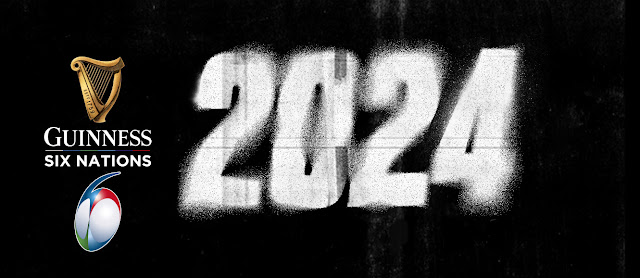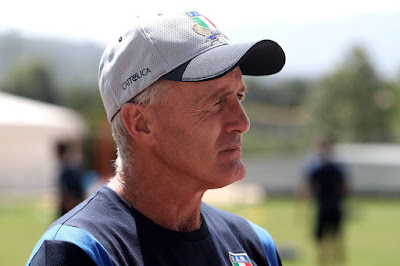Why Italy will be a stronger force come the 2024 Six Nations.
Italy ended this year’s Six Nations disappointed and frustrated in equal measure. The performances were certainly more positive and a points difference of -60 was the best in a decade, but still not enough for Italy to avoid bringing home the wooden spoon. The thought of meeting hosts France and the formidable All Blacks at the World Cup in 6 months doesn’t muster feelings of confidence that things will get better. Italy may be destined for their customary 2 wins and no quarter-final at this summer’s tournament, but over the horizon of 2023 there is a four-year cycle that Italy have been planning for. Whilst other nations will be looking to regenerate their squads after the retirement of their older, experienced players, Italy (and hopefully Kieran Crowley) will be able to retain and build on the large majority of this year’s squad. This is why Italian fans should feel hopeful whatever happens this summer.
After the announcement of Stuart Hogg’s decision to retire post-World Cup, I decided to have a look at the make-up of the six-nations' squads to try and predict what they will look like after the World Cup. It is clear that some huge names in rugby will be missing come next year (Hogg, Johnny Sexton, Alun Wyn Jones) and with that comes decisions. The coaches and selectors will need to decide as to whether there is a need to invest game time in young players or stick with the older, reliable players who may not make it to the 2027 World Cup. Even in this year’s championship, we saw Warren Gatland’s Wales chopping and changing, Steve Borthwick’s England undecided on the future (Smith) or the present/past (Farrell) and Andy Farrell’s Ireland crescendoing towards the World Cup with a squad stacked with experience. The statistics suggest that these decisions won’t be as much of a problem for Italy.
At this year's championship, Italy (6) had the second fewest number of players over 30 years old, higher only than France (5). The number of minutes played by over 30s for Italy (862) was 3 times lower than that of Wales (2585) and Ireland (2518) and 70% of those came from Luca Morisi (220) and Igancio Brex (400), the latter playing every minute. This might identify a problem for Italy, in terms of experience in the centres, but I think it more importantly signifies the number of leaders Italy will keep over the next World Cup cup cycle. They have a young captain in Michele Lamaro (24) and important players like Federico Ruzza (28), Sebastian Negri (28), Tommaso Allan (29) and Eduardo Padovani (29) who haven’t reached 30.
When I think of which players might retire from the Italian national team after the World Cup, I can only think of Sergio Parisse (39), Luca Bigi (31), Federico Zani (33) and Marco Fuser (31). Whilst Parisse hasn’t been ruled out of the World Cup squad, he is amongst a talented and competitive back row contingent. His last game occurred at the previous World Cup in 2019 and although his knowledge and experience from the previous 5 tournaments might be useful, he will not be available (as a player) come the end of the year. Bigi is another player who has given a lot to the national team, but his inclusion in this year's Six Nations was predominantly due to Gianmarco Lucchesi’s injury and Hame Faiva’s lack of game-time after the unfortunate collapse of Worcester Warriors. Again with Zani, his inclusion was mainly down to the suspension of Ivan Nemer. Zani has hardly played for the national team since the end of the O’Shea era. Lastly, Marco Fuser, who has been consistently in Crowley’s squads for his short tenure. He is now playing in the Pro D2 with Massy, but despite a host of young locks coming through (Niccolò Cannone, Edoardo Iacchizi, Riccardo Favretto and Andrea Zambonin), I think that Crowley extending his contract could see Fuser extend his availability with the Azzurri. Now I want to compare this to how Wales will look in a year’s time.
It’s not a coincidence that I chose Italy’s current closest rivals to compare to. Wales have been highly reliant on their older players over recent years and a number of big names are coming towards the end of their careers. Alun Wyn Jones at 37 will surely retire after the World Cup and Dan Biggar (33) would have to do a Johnny Sexton if he is to make it to the next tournament. Captain Ken Owens is 36 and will be unlikely to carry on much further into the next cycle. Then there is Taulupe Faletau (32), Justin Tipuric (33), Rhys Webb (34) and Leigh Halfpenny (34), all on their way towards their mid-30s. The previously mentioned names contribute 625 international caps to the Wales team, over 100 caps more than the entire Italy team (496) chosen to play against Scotland. From now until the next Six Nations, there are over 200 caps up for grabs and I expect Italy to enter that tournament in a better shape in terms of their experience.
This doesn’t mean that we won’t see new faces in the Azzurri shirt. The U20s team achieved a record high position of 3rd in their Six Nations this year and the team are producing young talent at a rate the two Italian franchises can’t keep up with. The Federation seem happier than before for young players to leave Italy to get more game time and I don’t think it will be long before we see Francois Carlo Mey (ASM Clermont Aevergne) and David Odiase (Oyonnax Rugby) follow the path of Ange Capuozzo and Iacchizi by entering the Italian national team from within French rugby. However, I think it’s the ability to not rock the boat of the current squad that could see Italy have an advantage over the other nations this time next year.


Comments
Post a Comment